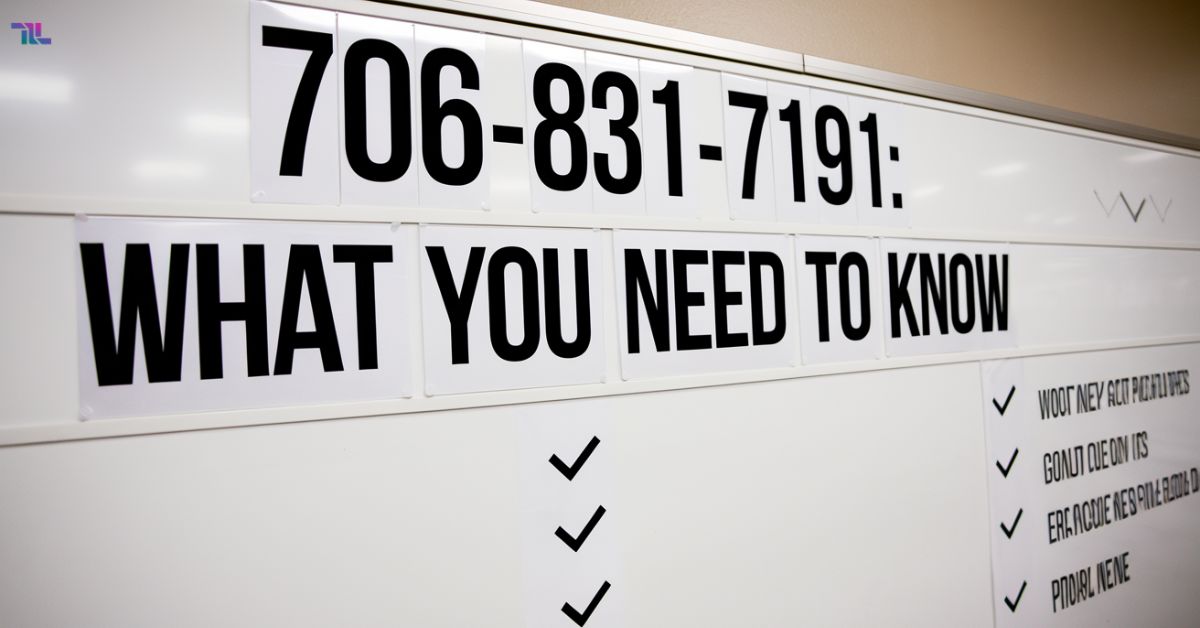Have you ever received a call from 706-831-7191? Many people across Georgia have encountered this number. Understanding unknown phone numbers is crucial in today’s digital age. Phone scams and unwanted calls have become increasingly common. Every day, thousands of Americans receive suspicious calls from unfamiliar numbers.
Ring, ring! Another call from 706-831-7191 lights up your phone screen. Before you hit answer or decline, take a deep breath. What you’re about to learn about this mysterious Georgia number could save you from a major headache – or worse, a costly scam.
This comprehensive guide will help you understand everything about 706-831-7191. We’ll explore its origins, potential uses, and how to protect yourself. Knowledge is your best defense against unwanted calls and potential scams.
Background Information: Area Code 706
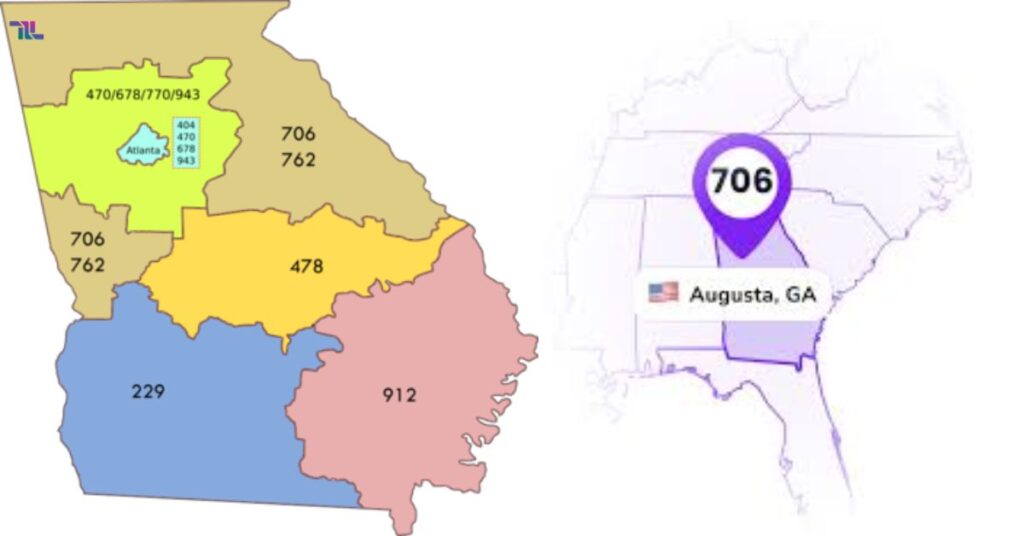
The area code 706 serves northeastern Georgia. It was established in 1992 through a split from the 404 area code. Augusta, Athens, and Columbus are the major cities using this area code. The Georgia Public Service Commission oversees area code 706.
Over 1.2 million residents rely on the 706 area code for their phone service. Local businesses commonly use 706 numbers to serve their communities. The area includes both urban and rural communities across multiple counties.
Many legitimate organizations operate using the 706 prefix. However, scammers often exploit local area codes to appear trustworthy. Understanding your local area code helps identify potential callers.
Also Read This Blog:Exploring 5StarsStocks.com: Diversify Your Portfolio With Smarter Stock Investments
Use Cases For 706-831-7191
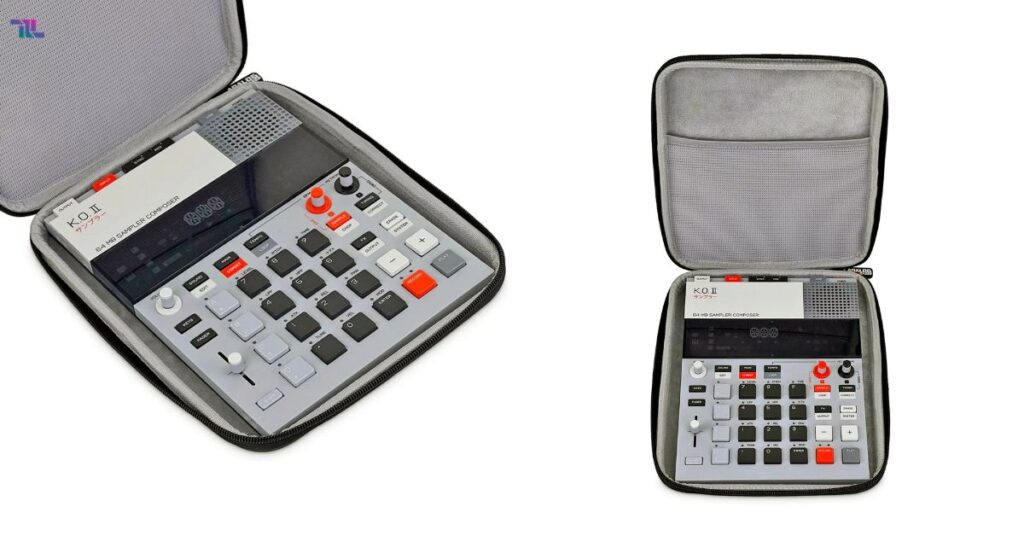
This number has been reported in various contexts. Some users report receiving insurance-related calls. Others mention marketing or sales communications. Local business connections have been suggested by some recipients. The number appears active during standard business hours.
Multiple calling patterns have been observed from this number. Some recipients report automated messages or robocalls. Others mention live operators identifying as insurance agents. Marketing campaigns sometimes utilize this number.
Customer service operations may be connected to it. Appointment reminders have been reported from this line. Survey calls are another reported use case. Various business sectors might employ this number. Understanding these patterns helps evaluate the caller’s intent.
Privacy And Security Considerations
Never share personal information with unknown callers. Your social security number should remain private. Keep financial details confidential during unexpected calls. Password information should never be disclosed. Be cautious of urgent payment requests.
Verify caller credentials independently. Record details of suspicious calls. Block problematic numbers immediately. Enable caller ID on your phone. Screen calls from unknown numbers. Use voicemail to filter unexpected calls. Consider a call-blocking app for protection.
Report suspicious activity to authorities. Keep records of unwanted calls. Document any threatening messages. Maintain awareness of common scam tactics. Trust your instincts about suspicious calls. Protect your personal data carefully.
Also Read This Blog:The Latest Trends In Dress Fashion: A Comprehensive Guide
How To Verify The Identity Behind 706-831-7191
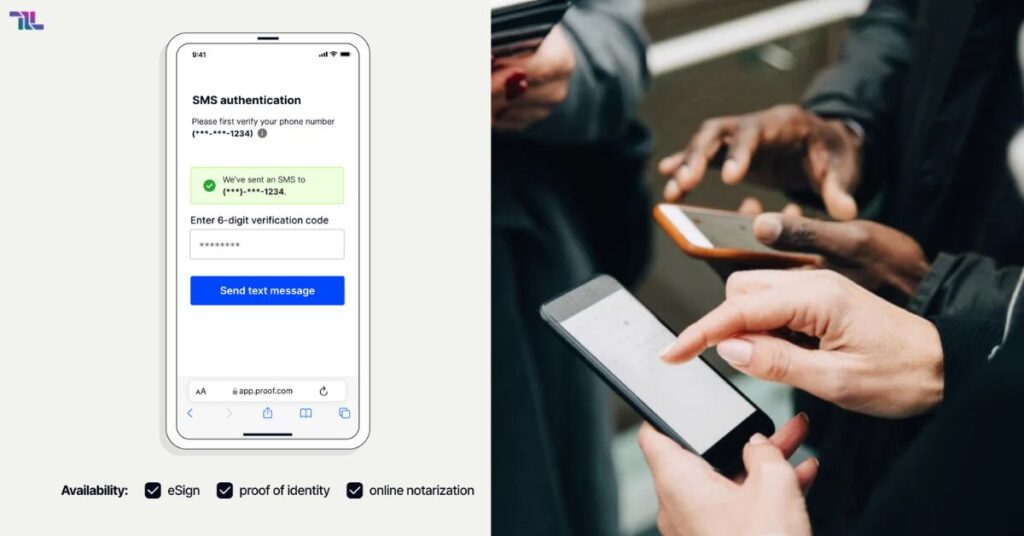
Use online reverse phone lookup services. Check the Better Business Bureau website. Consult consumer protection databases. Search social media for mentions. Review online forums for similar experiences. Contact your state’s consumer protection office.
Verify business licenses if applicable. Check official business registries. Use trusted caller ID applications. Investigate company websites carefully. Cross-reference business addresses. Validate professional credentials.
Confirm industry certifications. Check state licensing boards. Review consumer complaint databases. Document verification attempts. Save search results for reference. Keep records of your findings.
Potential For Scam Calls From 706-831-7191
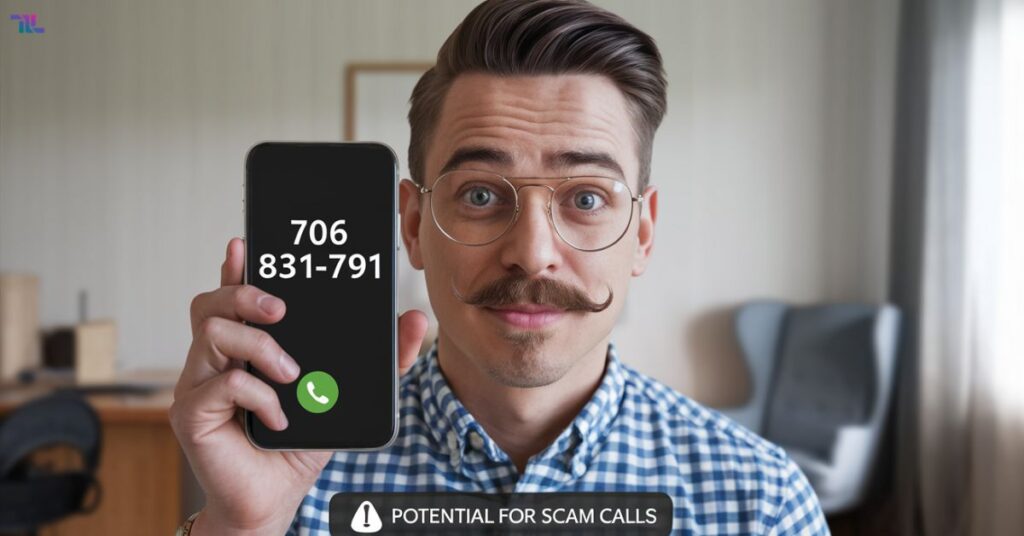
Watch for high-pressure sales tactics. Beware of urgent payment demands. Notice inconsistent company information. Recognize threatening language patterns. Identify impersonation attempts. Monitor for repeated unwanted calls.
Watch for caller ID spoofing. Notice unusual calling hours. Recognize vague business purposes. Watch for unsolicited insurance offers. Notice requests for immediate decisions. Identify suspicious payment methods. Watch for promises of unrealistic returns.
Notice lack of written information. Recognize unauthorized charges discussions. Watch for identity theft attempts. Monitor for fraudulent schemes. Document suspicious behaviors.
Local Services Associated With 706-831-7191
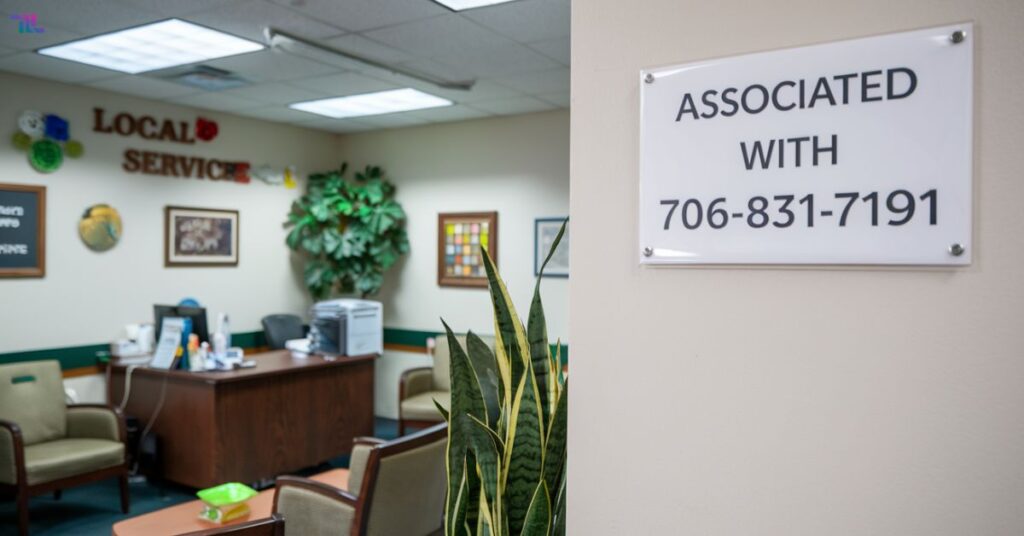
Some legitimate businesses use local numbers. Medical offices may use this area code. Local retailers might call customers. Service providers contact clients locally. Delivery services utilize local numbers. Appointment reminders come from local codes.
Emergency services use 706 numbers. Schools contact parents through local lines. Municipal services use local prefixes. Utility companies employ local numbers. Local contractors contact customers.
Community organizations use local lines. Religious institutions maintain local numbers. Professional services use area numbers. Local media outlets contact sources. Government offices use local prefixes. Financial institutions contact clients locally.
Additional Safety Tips
Create a call screening strategy. Maintain a blocked numbers list. Update privacy settings regularly. Review phone security features. Install trusted security apps. Keep software updated regularly. Monitor account statements carefully. Review credit reports monthly. Maintain strong passwords always. Use two-factor authentication. Report suspicious activities promptly.
Document unwanted communications. Save threatening messages. Record call details accurately. Photograph suspicious texts. Screenshot unusual emails. Maintain security awareness. Practice safe communication habits.
Legal Protection Measures
Know your consumer rights. Understand telemarketing laws. Review Do-Not-Call regulations. Learn about robocall restrictions. Understand TCPA guidelines. Know state-specific laws. Review federal protection rules. Understand privacy legislation. Learn about identity theft laws.
Review fraud protection measures. Know reporting procedures. Understand legal remedies. Review consumer protection acts. Learn about civil penalties. Understand criminal statutes. Know enforcement procedures. Maintain legal documentation. Follow reporting protocols.
Best Practices For Call Management
Screen unknown numbers always. Verify caller identities independently. Keep call logs updated. Document conversation details. Save important messages. Block unwanted numbers immediately. Update contact lists regularly. Maintain security settings.
Review privacy policies. Check blocked numbers list. Update security features. Monitor call patterns. Record suspicious activities. Save important voicemails. Document harassment instances. Keep security software updated. Maintain awareness always. Practice safe habits.
What To Do If Contacted
Remain calm and collected. Listen carefully to claims. Don’t make immediate decisions. Request written information. Verify company details independently. Check official registries. Document call information. Save relevant messages. Record conversation details.
Take careful notes. Maintain professional demeanor. Ask detailed questions. Request callback numbers. Verify physical addresses. Check business licenses. Review company history. Maintain documentation. Follow up appropriately.
Reporting Procedures
Contact FTC immediately. File FCC complaints promptly. Notify state authorities. Report to local police. Contact consumer protection offices. File BBB complaints. Report identity theft attempts. Document fraud attempts. Save all evidence. Maintain detailed records.
Follow up regularly. Check complaint status. Update reports needed. Keep reference numbers. Maintain correspondence copies. Follow reporting guidelines. Document all actions. Keep timeline records.
Prevention Strategies
Install security apps. Update phone settings. Review privacy features. Maintain blocked lists. Check security updates. Monitor call patterns. Review account activity. Update passwords regularly. Maintain awareness levels. Practice safe habits.
Follow security protocols. Review protection measures. Update contact lists. Maintain documentation. Follow best practices. Review security regularly. Update protection measures. Maintain vigilance.
Consumer Protection Resources
Contact consumer agencies. Review protection websites. Check government resources. Use online databases. Review legal resources. Check consumer guides. Use protection tools.
Review safety measures. Check official websites. Use reporting tools. Review protection laws. Check safety guidelines. Use verification tools. Review security measures. Check official resources. Use protection services. Maintain awareness levels. Follow guidelines carefully.
Frequently Asked Questions (FAQ’s)
Is 706-831-7191 A Legitimate Business Number?
Verification is required for each call. Check official business registries and consumer protection databases.
How Can I Block Calls From This Number?
Use your phone’s blocking feature or install a call-blocking app.
Should I Answer Calls From 706-831-7191?
Let unknown calls go to voicemail first. Listen to messages before deciding to respond.
What Should I Do If I’ve Shared Personal Information?
Contact your bank immediately. Monitor credit reports. Report to authorities.
Can I Report Unwanted Calls From This Number?
Yes, report to the FTC, FCC, and state consumer protection office.
Conclusion About 706-831-7191
Protecting yourself from suspicious calls requires vigilance. Understanding area code 706 provides context for evaluation. The number 706-831-7191 warrants careful consideration before engagement. Keep personal information secure when receiving unexpected calls.
Use available tools to verify caller identities. Report suspicious activities to appropriate authorities. Maintain records of problematic communications. Follow best practices for call screening. Stay informed about common scam tactics.
Protect your privacy through careful call management. Use available resources for consumer protection. Keep security measures updated regularly. Monitor accounts for suspicious activity. Maintain awareness of current threats. Follow recommended safety protocols.
Stay vigilant against potential scams. Protect yourself through knowledge and preparation. Remember that legitimate businesses respect consumer rights and privacy.
